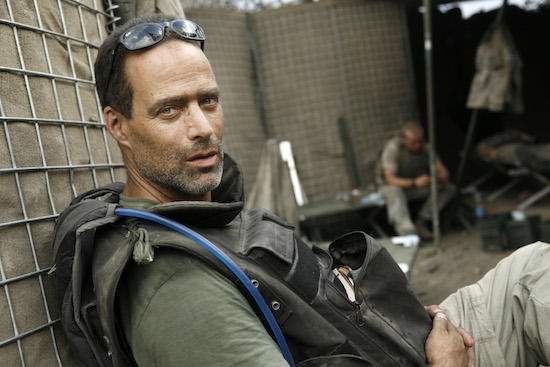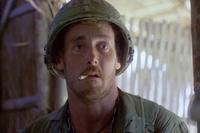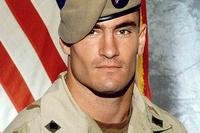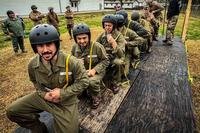
Journalist and filmmaker Sebastian Junger has just released Korengal, a followup to his Oscar-dominated documentary Restrepo, which followed men fighting in Afghanistan in 2007-2008. The new film is edited from footage shot at the same time they shot the film used in Restrepo, but Junger offers a much different take on the material in Korengal.
Junger made Restrepo in collaboration with photojournalist Tim Hetherington, who was killed covering the uprising in Libya shortly after the Oscar ceremony in 2011. His life is the subject of Junger's documentary Which Way is the Front Line From Here?, which aired on HBO in 2013.
%embed1%
The filmmaker financed the new movie himself and he's handling theatrical distribution himself. The film opens in four theaters this weekend before spreading around the country over the course of the summer. You can get details about theaters and opening dates here.
Junger talked to Military.com about Korengal and Restrepo, what he tried to accomplish with the two films and why he decided to market the movie on his own.

Talk about where the footage for "Korengal" came from and how the film got made.
All the footage for both Restrepo and Korengal was shot in '07, '08, by myself and Tim Hetherington, and the interviews were shot several months later.
Did Tim shoot the interviews with you? He was still working with you at that point?
Yes, we hired a videographer and a sound guy and did studio interviews in Vicenza, Italy.
%embed2%
When "Restrepo" came out, it prove to be a real breakthrough for how people saw documentaries about war. What were you guys trying to do when you made that film?
We were trying to make a film that would allow civilians to experience what combat feels like, what it's like to be in combat. As soon as you step away from combat and do an interview with a general or an ambassador or have a musical score, it diminishes the experience of thinking you're there. And we really wanted to make a film that tried to keep that illusion alive as much as possible. Korengal was very different. I wanted to make a movie that really kind of explored the effect of combat on young men and try to answer some complicated questions like: “What does courage mean? How do soldiers think about courage and about fear?” And primarily, actually, “Why do soldiers miss war? Why do so many soldiers miss war after they leave?”

It's amazing that you have the same people in both films but the individuals offer a very different perspective in Korengal than you got in Restrepo.
In Korengal, I went for the parts of the interviews where they were particularly thoughtful and sort of emotionally honest about what they experienced and how it was going to affect them.
Have you had a chance to show the film to the guys you interviewed since you finished it?
Yes, I have. Most but not all. There's some I can't find, but the ones who’ve seen it love it. They think it's better than Restrepo.

Neither film seems to be pursuing an agenda.
Tim and I are both journalists and we're completely schooled in the obligation to be nonpartisan and neutral. I don’t want to keep my thumb on the scale and try to convince our readers, our viewers, to think a certain way about something. So that’s what journalism is and everything else is advocacy. And I think that’s a bright line that a lot of left wing and also a lot of right wing reporters don’t really realize.
Restrepo was just an extension of my journalism and it wasn’t a struggle at all to stay neutral. It was a bit of a breakthrough to realize that on a certain neurological level you can make a film that allows people to sort of almost think they're there.
When something explodes, when there's a loud noise in a movie, people jump because part of their brain thinks they're actually there. If you read the word "boom" in a book, you don’t jump because you don’t think you're there. But likewise in a documentary, where there's a lot of interviews with people outside of the drama, and a musical score, and a narration, all that stuff, your brain knows but you're not in that situation. If you strip all that stuff away, you can create the illusion. On some level, the viewer could have the illusion that they're actually there for an hour and a half, and that’s what we were trying to do.

In contrast to some other documentaries, you trusted that what was happening was interesting enough without trying to craft it into a story arc.
There is an arc. I mean there's an emotional arc, but there isn't – I mean every film, every story, every book, everything has an arc in the sense where you introduce people and introduce the situation and it sort of rises in tension and complexity and then it resolves. That’s every song, it's every book, it's everything. But what we didn’t want to do was overlay the political analysis or moral analysis on top of that arc.
It would be interesting to see a movie about the guys who appear in both of the films and find out what's happened to them since 2008.
Well, part of the problem with that is they're not a group anymore. They're not a unit. You'd have to chase them down, get releases from them. You didn’t have to get releases from them when they were in the military, obviously. And a lot of guys don’t really want a video camera following them around while they're arguing with their wife or whatever. It would be interesting, but frankly I’m not sure it's that feasible.

Talk about what’s happened since how you finished the film and how it's being shown in theaters.
Tim and I funded the making of Restrepo, which put us several hundred thousand dollars in debt, which we got back because we sold it to National Geographic and then continued selling DVD's.
With Korengal, not only did I finance the making of the film, using the same editor as we worked with with Restrepo, but we also decided to not sell it to a distributor, to not sell it to a broadcaster. We were gonna do all of that ourselves. And so the model was that we would pay to put it in theaters, which would bring reviews and visibility. And then there's a three month hold back and then it's available online, VOD or DVD, and we make our money at that stage. We're not even talking to broadcasters, but we think we can make back and doing quite well just selling from our own website online. It's sort of the Louis C.K. model of distribution.
What’s your next project?
I made a third film called The Last Patrol for HBO. It's going to air in November. And it takes place in this country and it's with two combat vets from the Korengal and me and another journalist. We all decided never to go back to war again. And it's our attempt to process why war is so hard to give up and why it's so hard to come home. It's a really interesting film. So just keep your eyes out for it.




